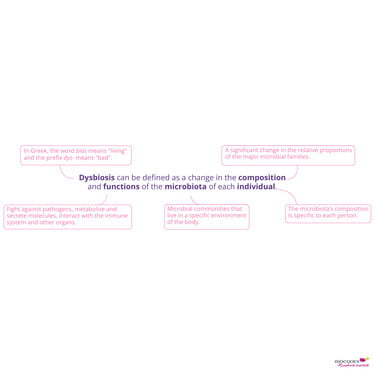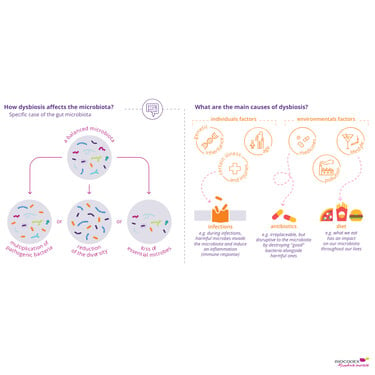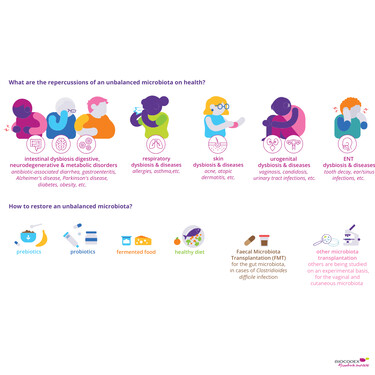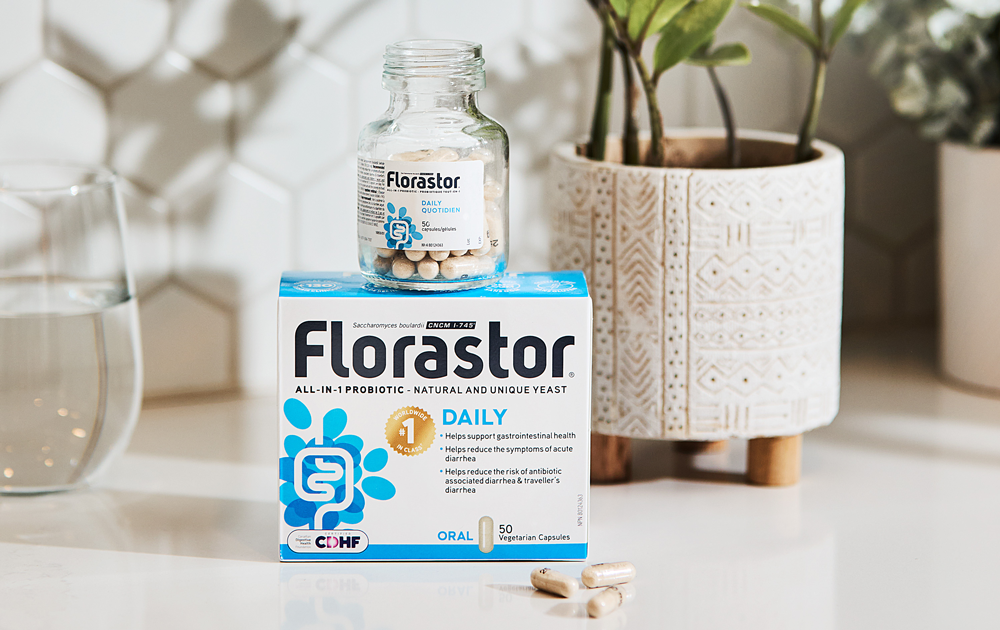Dysbiosis may sound like an overly fancy scientific term, but it pretty much just means that there is an imbalance between good and bad bacteria in one’s digestive tract.
It sometimes also refers to the fact that the overall diversity in one’s gut microbiome has been reduced from an optimal state.
Diversity in the gut microbiome means there are ample amounts of many different families of “healthy bacteria”. More microbiome diversity is a good thing and actually is directly related to how much diversity one achieves in their diet. This means that people who consume many different types of fruits, veggies, nuts, seeds, beans and whole grains are more likely to have better microbiome diversity and ultimately be at a lower risk of ending up with microbiome dysbiosis.
Findings like these speak to the significant connection between dietary choices, the human gut microbiome and overall health.
The gut-health connection: dysbiosis diseases
Gut health is one thing, but the connection between the gut and health is slightly different. I find that many people tend not to fully appreciate the robust role the gut microbiome plays in human health.The reality is that our gut bacteria play a huge part in regulating the immune system ,inflammation, our blood sugar balance and particularly the healthy function of our brain. The acclaimed scientific journal The Lancet regularly explores the role of the gut microbiome and microbiome dysbiosis in mental health – particularly depression.
In my private practice a great deal of time is spent a lot of time working with people who are living with metabolic and insulin-resistance associated conditions including diabetes, fatty liver disease and PCOS. Inflammation, insulin-resistance and microbiome are all strongly connected. When one suffers, the others tend to follow. It is no coincidence, for example, that probiotics are one of the most effective and well studied supplements for fatty liver disease.
Dysbiosis, inflammation and insulin resistance are all common features of fatty liver disease, and probiotic use can play a role in re-balancing the gut microbiome and, in turn, improving liver health. Fatty liver disease, by the way, impacts around 1/3 of the global population.
Causes & consequences of dysbiosis
Above and beyond the physiological consequences, other signs and symptoms of dysbiosis include:
1. Gas, bloating and indigestion
2. Reduced focus, brain fog, compromised mood
3. Aggravation of migraine, arthritis and other conditions
4. Inflammation, particularly of the digestive tract
Many of these concerns can arise for multiple reasons or combinations of multiple-factors above and beyond dysbiosis.
Dysbiosis is more likely to occur in people who :
1. Have certain medical conditions, as discussed.
2. Have a history of imbalanced nutrition
3. Are not physically active
4. Consume alcohol, cigarettes (or nicotine in other forms).
5. Have a history of frequent antibiotic use*
Antibiotic medications are valuable tools when used appropriately, but equally it is important to recognize that antibiotic use can negatively influence gut microbiome diversity.
This could contribute to microbiome dysbiosis or worsen it in those who already have it.
That’s where Florastor comes into consideration.
The role of Florastor in microbiome dysbiosis
The unique Saccharomyces boulardii probiotic strain CNCM I-745 found exclusively in Florastor has a number of documented strengths that are really highlighted by its successful use in conjunction with antibiotics.
S. Boulardii CNCM I-745 has, for example, been demonstrated to reduce the negative effects of antibiotic use on the gut microbiome both in people being treated for H. pylori infection and in healthy volunteers.
Final thoughts
Many common human health conditions are partially characterized by gut microbiome imbalances.
We have many ways to fight back against these imbalances and maintain a healthy gut microbiome overtime.
Being physically active, minimizing nicotine and alcohol use, strong nutrition and the strategic use of probiotics like Florastor all have meaningful roles to play.
.jpeg?sw=375&sfrm=png&q=90)







